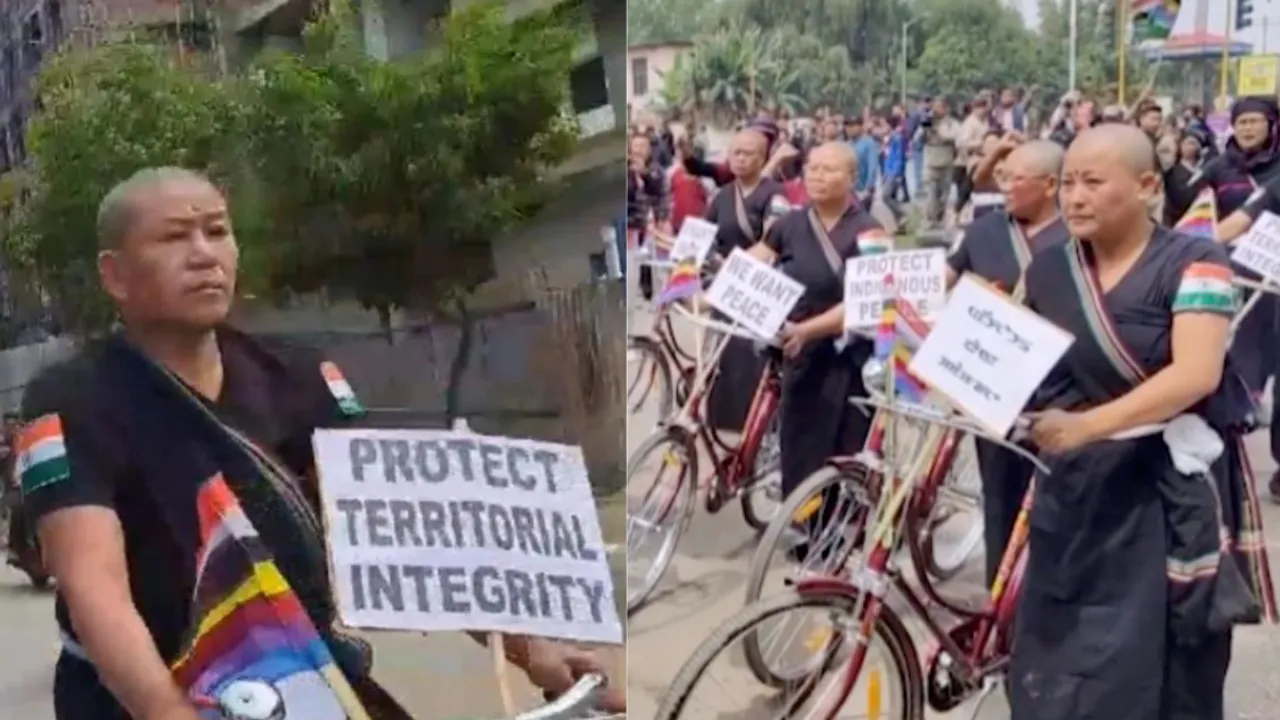Seven women in Manipur have chosen to shave their heads as a form of protest against the ongoing turmoil in the state. These bold individuals took to the streets, riding bicycles, to voice their discontent and call for peace in a region plagued by violence. Shaving one’s head holds deep cultural significance, often associated with Hindu funeral rites traditionally performed by male relatives to mourn the loss of a loved one. However, throughout history, women have been subjected to this practice as a means of punishment and humiliation, reflecting the pervasive misogyny prevalent in society.
This act of defiance by the women of Manipur echoes similar movements seen in other parts of the world, where women have challenged societal norms and rallied for change. Despite facing immense challenges and threats of violence, these women refuse to remain silent, using their voices and actions to demand justice and accountability from those in power.
The recent protest in Manipur underscores the pivotal role that women often play in driving social and political movements, particularly in conflict-ridden regions. Their resilience and determination serve as a beacon of hope in the face of adversity, inspiring others to join their cause and push for meaningful change.
The unrest in Manipur, fueled by ethnic tensions and political disputes, has resulted in numerous casualties and displaced individuals. Yet, it is often the marginalized voices, such as those of women, that are overlooked in mainstream discourse.
As the situation in Manipur remains tense, it is imperative that the concerns and grievances of its people, especially its women, are given the attention and support they deserve. Only through concerted efforts and genuine dialogue can lasting peace and stability be achieved in the region.



